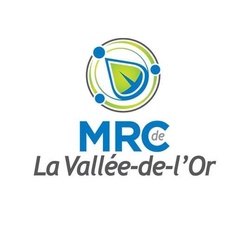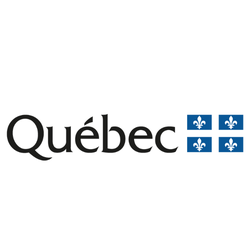
MRC La Vallée-de-l'Or — Local Investment Funds FLI-FLS
At a glance
- Maximum amount : 300,000 $
- Minimum amount : 5,000 $
- Up to 50% of project cost
- Open Date : May 17, 2023
- Mining, quarrying, and oil and gas extraction
- Manufacturing
- Wholesale trade
- Retail trade
- Professional, scientific and technical services
- Health care and social assistance
- Val-d’Or
- Non-profit
- Public or Parapublic institution
- For-profit business
- Social economy enterprise
- Non-financial cooperative
- All revenue ranges
- All organization sizes
- Startups
- Economic, Social and Community Development
- Employment and Training
- Business Associations
- Rural / Remote communities
- Business owners / entrepreneurs
- Nonprofits / charities
- Mixed revenue (50%+ earned)
- Regional
Overview
The Fonds local d’investissement (FLI) and Fonds local de solidarité (FLS) provide financial support primarily through loans, with a maximum cumulative aid of $300,000 for eligible projects. The program aims to support the start-up, improvement, growth, and entrepreneurial succession of businesses in the MRC de La Vallée-de-l’Or, as well as to foster job creation.
Activities funded
The MRC La Vallée-de-l'Or's Local Investment Funds FLI-FLS program supports a range of business projects aimed at fostering local economic development through various stages of business evolution. Eligible projects are diverse, targeting new ventures and established businesses alike.
- Projects for starting new businesses.
- Initiatives for business improvement and transformation.
- Endeavors focusing on business growth and expansion.
- Projects facilitating entrepreneurial succession and transition.
Eligibility
Eligibility for this grant is determined by specific requirements related to the company's status, location, and type of project.
- The company must be legally constituted as a for-profit or a collective business (cooperative and non-profit) under the laws of Quebec or Canada.
- The company must be registered in Quebec to legally conduct business and operate an enterprise, regardless of its constituting law.
- For start-up projects, companies must have been active for less than two years and be in the commercialization phase.
- For improvement and transformation projects, companies must have been active for at least one year.
- For growth and expansion projects, companies must have been active for at least two years.
- For entrepreneurial succession projects, companies must involve an entrepreneur or group of entrepreneurs acquiring at least 25% of a business to assume leadership.
- The company must not be involved in prohibited activities such as arms production or fossil fuel extraction.
- The company must not be registered in the Register of enterprises ineligible for public contracts (RENA) or under restructuring due to financial insolvency.
- The business activities must be socially responsible and contribute positively to local economic development.
Who is eligible?
The Fonds locaux grant targets legally constituted businesses, cooperatives, and non-profit organizations in Quebec aiming to support economic growth and job creation within the MRC de La Vallée-de-l'Or.
- Startups operating in Quebec for less than two years in their commercialization phase.
- Companies in Quebec seeking improvement and transformation that have been operational for at least one year.
- Companies focused on growth and expansion operational in Quebec for at least two years.
- Entrepreneurial takeover projects aiming to acquire at least 25% of an existing business, excluding simple stock purchases.
- Projects aiming for eco-responsibility and sustainable practices.
Who is not eligible
This grant excludes certain companies and industries due to their status or main activity. The restrictions aim to direct financial support towards entities that align with regional economic and ethical standards.
- Companies registered in the Registre des entreprises non admissibles aux contrats publics (RENA).
- Companies that failed to meet obligations related to previously granted financial aid within the past two years.
- State enterprises or companies controlled by any level of government.
- Companies under protection from bankruptcy laws, specifically the Law on Arrangements with Creditors or Bankruptcy and Insolvency.
- Companies primarily involved in arms production or distribution.
- Businesses focused on fossil fuel-related activities, unless related to a transition towards low-carbon economies.
- Organizations involved in gambling operations, such as casinos and bingo halls.
- Companies engaged in violent games, combat sports involving living beings, or similar activities.
- Entities involved in sexual exploitation, including erotic bars, escort agencies, and similar ventures.
- Companies related to the production, sale, and services tied to tobacco or non-cannabis-related drugs.
- Any business with ethical behavior issues that could affect the integrity and reputation of public entities.
Eligible expenses
The grant outlines eligible expenses that are strictly tied to the realization of the business project and its operational success.
- Additional working capital needs related to the project for up to two years.
- Capital expenditures directly connected to the project, such as acquisition of technology, land, buildings, equipment, machinery, vehicles, and construction, expansion, renovation, or arrangement of land and premises.
- Professional fees prior to the realization of the project, such as feasibility analysis, external audit, or impact study.
- Professional fees directly linked to the implementation of the project, such as technology, equipment, and machinery installation, as well as acquisition, construction, renovation, and arrangement of land and premises.
- For entrepreneurial succession projects: acquisition cost of ownership titles, including voting shares or parts, and acquisition costs of company assets.
- Fees directly related to the transaction and acquisition, and transfer of business management.
Eligible geographic areas
This grant is specifically aimed at companies situated within a certain administrative region in Canada. The focus is on enterprises within the specified county for economic development purposes.
- Companies operating within the MRC de La Vallée-de-l’Or.
Selection criteria
The evaluation and selection criteria outlined in the context are intended to guide the decision-making process and ensure projects align with the defined strategic and economic goals of the grant allocation.
- The economic viability of the funded enterprise: The business plan must demonstrate a sustainable profit character and repayment capacity.
- Economic impact in terms of job creation: Projects should aim to significantly contribute to creating and maintaining jobs within the MRC de La Vallée-de-l’Or region.
- The knowledge and experience of the promoters: Entrepreneurs must display relevant domain expertise and managerial skills.
- Openness towards workers: The applicant's approach to labor relations and their readiness to work collaboratively with employees is considered.
- The participation of other financial partners: The involvement of financial institutions and additional capital sources is encouraged to spread financial risk.
- Sustainability of funds: Ensuring the self-financing of local funds is critical, with each investment's impact on the portfolio being assessed for balance and sustainability.
- Monitoring the progress: A periodic follow-up with funded enterprises is required to ensure adherence to funding terms and the identification of factors affecting the business.
How to apply
Prepare your application
- Gather the necessary business documents such as business plans, financial statements, and proof of legal incorporation in Quebec or Canada.
- Ensure that the project proposal aligns with the eligible activities according to the grant guidelines, such as startup, improvement, or expansion projects.
- Compile supporting documents regarding the economic viability of the project and the expected employment outcomes.
Submit via local channels
- Contact the appropriate regional contact within the MRC of La Vallée-de-l'Or for submission details.
- Make sure to submit all documents within the specified deadlines according to local guidelines.
Wait for the review
Additional information
Here are additional relevant details for this policy:
- The involvement with Fonds locaux de solidarité FTQ, S.E.C. requires that all investments be communicated and sometimes approved prior to execution, especially when it involves modifications to the proportionate sharing in investments.
- A moratorium period on capital repayment is available, with specifics varying according to project type.
- Regular reporting requirements are set for businesses receiving funds, including financial and operational reports.
- The CIE is empowered to make decisions on funding applications, with meetings occurring monthly or as needed for faster decision-making.
- The policy includes stipulations on the types of guarantees or personal sureties that may be required from borrowers.
- Insurance requirements are outlined, providing necessary coverage to protect the loan amount.
- Specific members of the CIE and their affiliations are defined to ensure a diverse and knowledgeable committee guiding investment decisions.
Frequently Asked Questions about the MRC La Vallée-de-l'Or — Local Investment Funds FLI-FLS Program
What is the MRC La Vallée-de-l'Or — Local Investment Funds FLI-FLS?
How much funding can be received?
Who is eligible for the MRC La Vallée-de-l'Or — Local Investment Funds FLI-FLS program?
What expenses are eligible under MRC La Vallée-de-l'Or — Local Investment Funds FLI-FLS?
Where is the MRC La Vallée-de-l'Or — Local Investment Funds FLI-FLS available?
Is the MRC La Vallée-de-l'Or — Local Investment Funds FLI-FLS a grant, loan, or tax credit?
Who are the financial supporters of the MRC La Vallée-de-l'Or — Local Investment Funds FLI-FLS?
More programs like this

PSCE – Component 2
Investissement Québec (IQ)
MAPAQ — Food Processing Program — Component 2
Ministry of Agriculture, Fisheries and Food (MAPAQ)
SCALE AI — Acceleration
Scale AI Cluster
Development of E-Business Tax Credit (CDAE)
Investissement Québec (IQ)
Research, Innovation and Commercialization Tax Credit (CRIC)
Gouvernement du Québec
Support for biofood exports - individual projects
Ministry of Agriculture, Fisheries and Food (MAPAQ)
ÉcoPerformance — Recommissioning of building mechanical systems
Gouvernement du Québec
Individual Market Access Support (SIAM)
Aliments du Québec
Panorama Program
Investissement Québec (IQ)